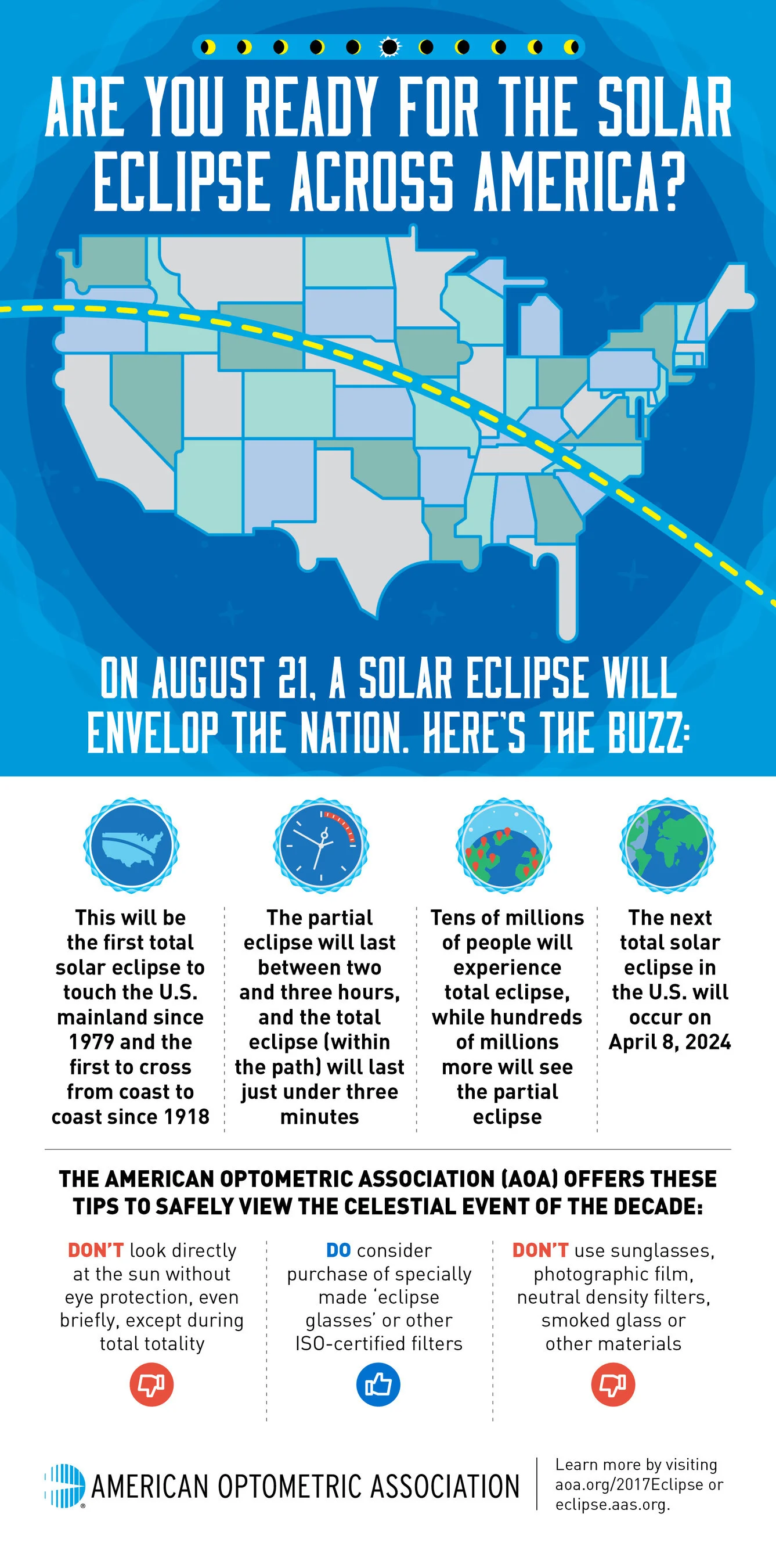On Monday, August 21, 2017, all of the United States will have a solar eclipse. The moon will cover at least part of the sun for 2 to 3 hours. Halfway through, anyone within a narrow path from Oregon to South Carolina will experience a brief total eclipse. The moon will completely block the sun's bright face for up to 2 minutes 40 seconds. Day will turn into night, and (weather permitting) one of nature's most awesome sights will become visible: the sun's shimmering outer atmosphere, or corona.
Here are six tips to safely view the solar eclipse:
- Don't look directly into the sun without proper eye protection!
- Use approved solar eclipse viewers. The only safe way to view a partially eclipsed sun is through special-purpose solar filters, such as "eclipse glasses" or viewers that meet international standard ISO 12312-2 for safe viewing.
- Sunglasses, smoked glass, unfiltered telescopes or magnifiers, and polarizing filters are unsafe.
- If you can't find eclipse viewers, build a pinhole projector to watch the eclipse.
- Before looking at the sun, cover your eyes with the eclipse viewers while standing still. Glance at the sun, turn away and then remove your filter. Do not remove the filter while looking at the sun.
- Visit your doctor of optometry. If you should experience discomfort or vision problems following the eclipse, visit iCare Family Vision for a comprehensive eye examination.




